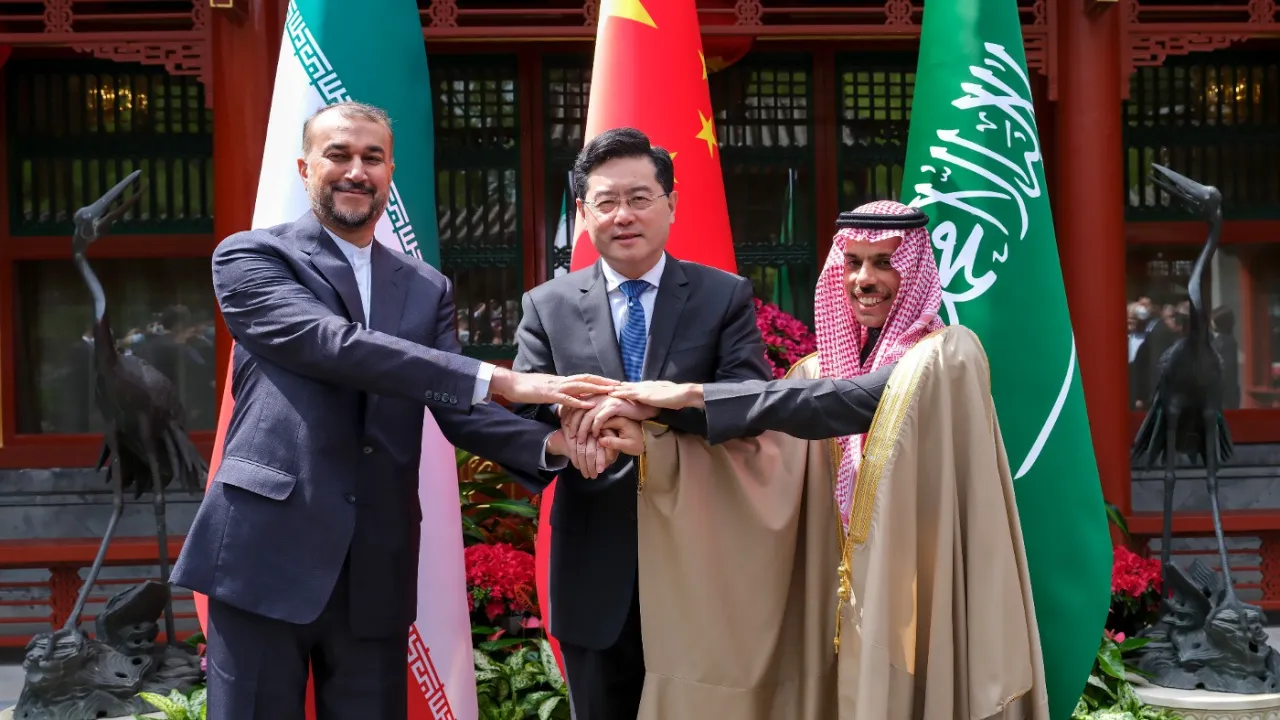Photo: In this photo released by Xinhua News Agency, Iran’s Foreign Minister Hossein Amirabdollahian, left, hold hands with his Saudi Arabian counterpart, Prince Faisal bin Farhan Al Saud, right, and Chinese counterpart Qin Gang in Beijing on April 6, 2023. Long-time Mideast rivals Iran and Saudi Arabia took another significant step toward reconciliation by formally restoring… Photo Credit: Ding Lin/Xinhua via AP
Published in The Hill on August 3, 2023
When America is perceived as fully engaged in the Middle East, with a credible military threat, adversaries retreat, and allies feel assured.
Unfortunately, the Middle East has realigned, primarily due to America’s decision to withdraw from the region, forcing long-time American partners to reconsider America’s reliability. The region’s authoritarians prefer America as an ally over China, Russia, and Iran, but America is distracted and perceived as weak. This is why they are now looking elsewhere.
The Middle East continually changes and confounds American foreign policy experts, who repeatedly fall into the trap of analyzing it through a Western lens.
In Foreign Policy, Steven Cook recently wrote, “For too long, bad assumptions have formed the basis of U.S. Middle East policy, including the notion that Iran’s leaders want to normalize ties with their neighbors. In reality, Iran does not want to share the region…The regime’s goal is to reorder the region.”
Read the rest from The Hill.
